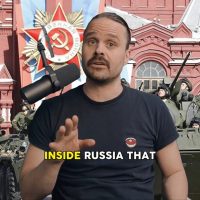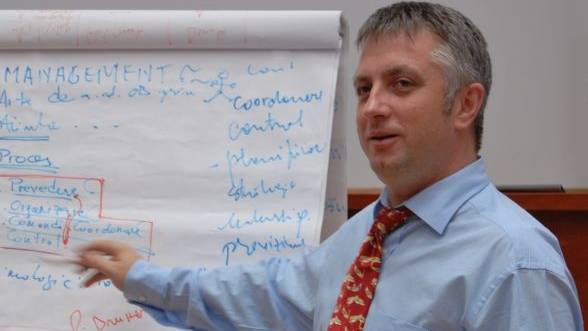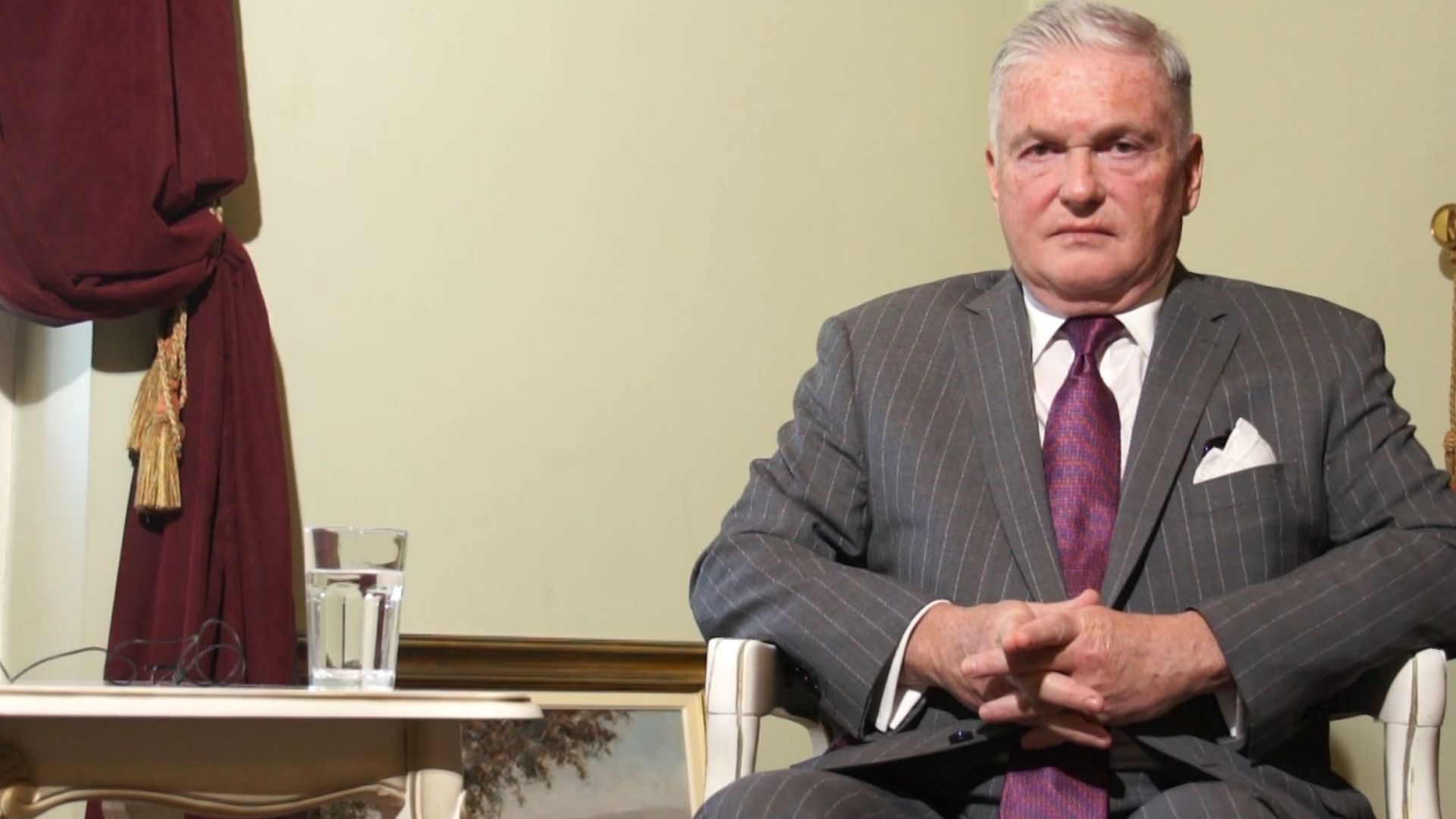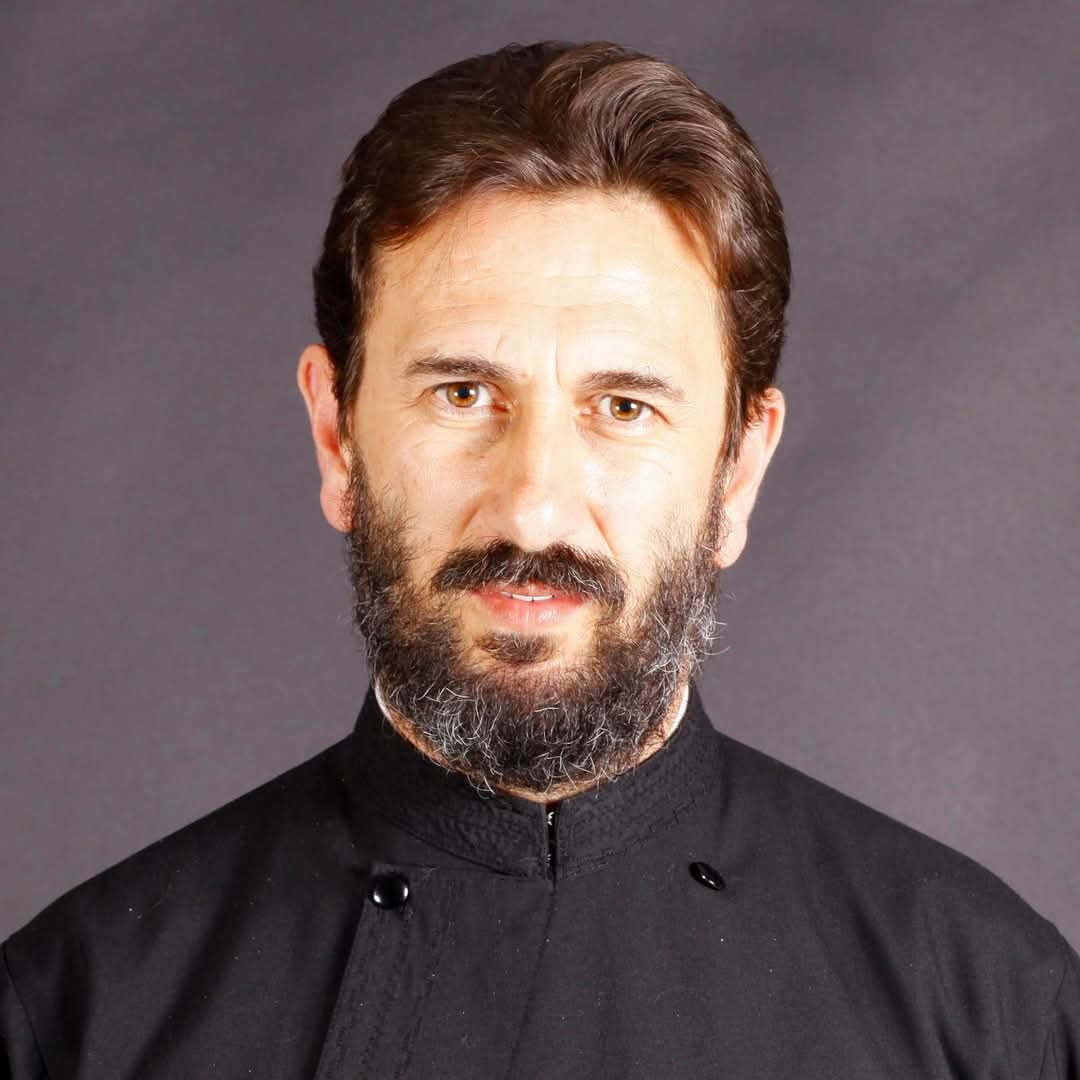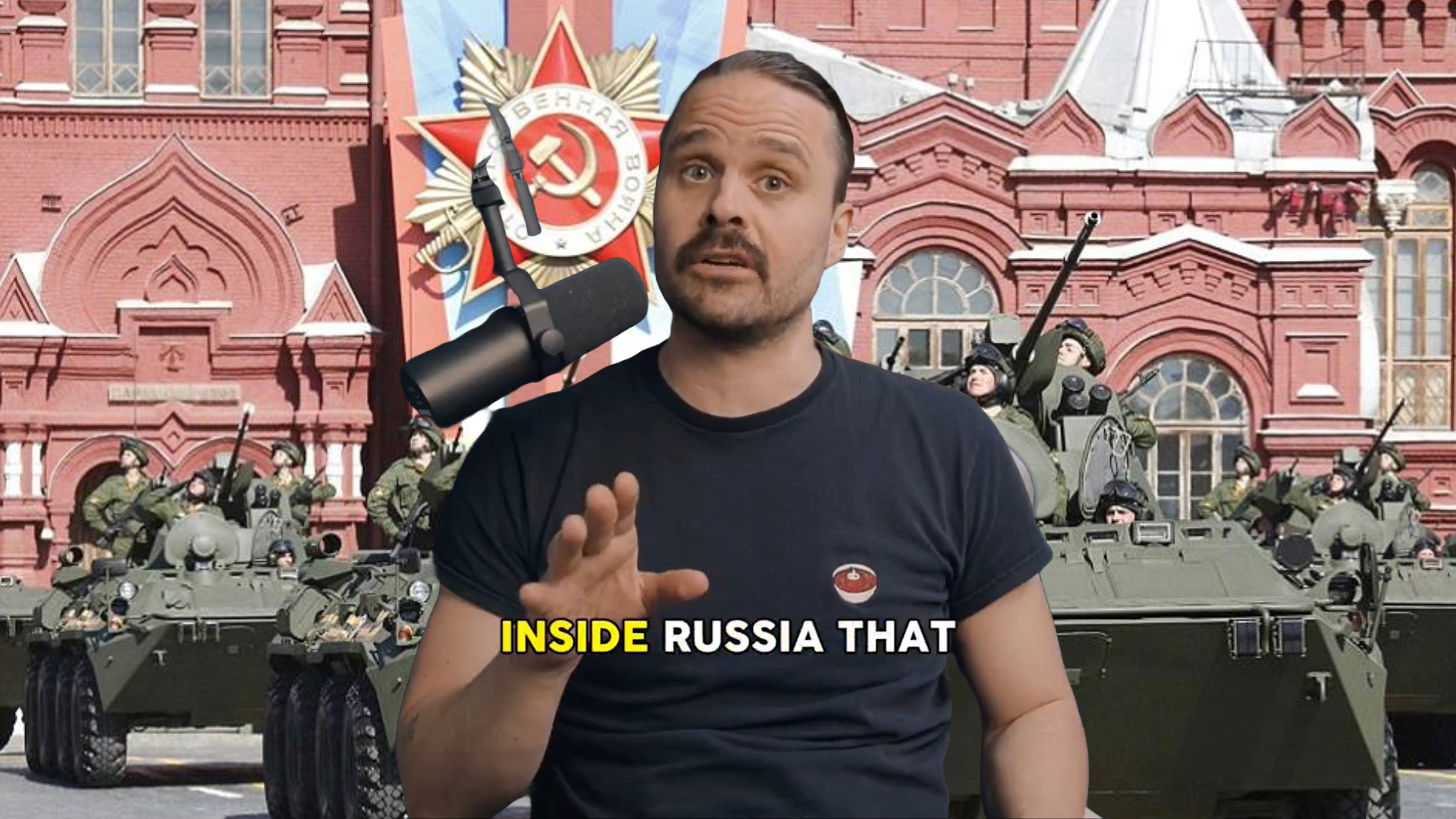A farewell and tribute to one of the leading chroniclers of the horrors of Soviet communism.
Robert Conquest (1917-2015) was a great intellectual, historian, and moral conscience. For the denizens of what used to be the Soviet Bloc, Robert Conquest’s name is truly legendary. I remember my own first experience with Conquest’s masterpiece The Great Terror. It was in Nicolae Ceausescu’s Romania, in the mid 1970s, when I got it from a famous dissident’s wife as a personal gift. He had decided to remain in France and urged his wife to offer his books to a few friends and acquaintances. I was lucky to be counted among them. I read it in a few days (and nights). It was a truly transformative experience, as devastatingly illuminating as having read Arthur Koestler’s Darkness at Noon, George Orwell’s 1984 or Aleksandr Solzhenitsyn’s Gulag Archipelago.
As a matter of fact, I had first heard of Robert Conquest’s path-breaking analyses of Stalinism from Radio Free Europe, during the unforgettable broadcasts by democratic intellectuals Monica Lovinescu and Virgil Ierunca. It was, however, an extraordinary, utterly disturbing, and unforgettable moment to read that encyclopedia of communist destructiveness that Conquest managed to compose in spite of Soviet archives being inaccessible, witnesses hard to interview, and all the other obstacles created by the re-Stalinization of the Soviet Union after Khrushchev’s fall in 1964. It was a genuine historical monument, superbly documented, an example of the best scholarship inspired by genuine empathy for the victims. Brought up in a family of former Spanish Civil War veterans who had spent the war years in the USSR, I thought I knew a lot about the magnitude of Stalin’s reign of terror. I was wrong: Conquest’s book made me understand the intrinsic criminality of the regime, its irresistible nihilistic logic, the diabolical drive to continuously homogenize society and eliminate whatever smacked of otherness, all the “objective” and “subjective” “enemies of the people.”
If I were to name the books I still consider unsurpassed in terms of analytical, explanatory and interpretive power dealing with Stalinism, I would count The Great Terror together with contributions by Robert C. Tucker, Richard Pipes, Martin Malia, Leonard Shapiro, Boris Souvarine, Alain Besançon, and Adam Ulam. No wonder that the revisionist school targeted some of these authors (especially Conquest, Malia, and Pipes) as the main proponents of a liberal anti-communist, allegedly Cold War-driven intellectual paradigm. It was quite normal for the self-styled anti-anti-communists of the Brezhnev era to dislike those who saw the system as essentially criminal and questioned the applicability of concepts such as social mobility in examining intra-elite massacres. This makes Stephen Cohen’s presence in this volume all the more remarkable.
It is therefore an imperative to pay tribute to such an intellectual giant. Several years ago, distinguished sociologist Paul Hollander succeeded in putting together a well-deserved, refreshingly diverse, non-encomiastic, and utterly honest festschrift for Robert Conquest (Paul Hollander, ed. Political Violence: Belief, Behavior, and Legitimation , New York: Palgrave Macmillan, 2008). Born in 1917, a poet, political thinker, diplomat, historian, a real polymath, Conquest has built an enduring oeuvre that has influenced generations of students of Soviet, Marxist and general revolutionary affairs. Martin Amis’ book Koba the Dread: Laughter and the Twenty Million(New York: Hyperion, 2002) starts with the following quotation from Conquest’s The Harvest of Sorrow: Soviet Collectivization and the Terror-Famine: “We may perhaps put this in perspective in the present case by saying that the actions here recorded about twenty human lives were lost for, not every word , but every letter in this book.” And Amis adds wryly: “That sentence represents 3,040 lives. The book is 411 pages long.”
Political Violence is much more than the traditional anthology of solemn, frequently hackneyed paeans to a great scholar. It is in fact an excellent collection of penetrating studies on the very concepts that did underlie Conquest’s lifelong endeavor: the centrality of violence in the Marxist revolutionary eschatology; the links between utopia, violence, ideology, and terror; the limits and relevance of comparisons between the Nazi and the Soviet totalitarian experiments. As Conquest put it himself in a seminal essay on history as a battleground:
“The huge catastrophes of our era have been inflicted by human beings driven by certain thoughts. And so history’s essential questions must be: How do we account for what has been called the ‘ideological frenzy’ of the twentieth century? How did these mental aberrations gain a purchase? What was the sort and condition of people affected? Who were the Typhoid Marys who spread the infection?” (Reflections on a Ravaged Century , New York: Norton, 2000, p. 3)
Hollander’s introduction offers a valuable set of keys for interpreting Conquest’s uniquely rich and multifaceted contributions. Having written himself outstanding studies on the self-hypnotization of radical intellectuals (and not only) during what Arendt once called “the ideological storms of the twentieth century,” Hollander accurately highlights Conquest’s role as a proponent of ethical normalcy. Bukharin’s biographer Stephen Cohen (an admirer of Conquest’s work in spite of many divergences) focuses on the post-Stalin returnees, people who survived the Gulag and experienced the difficulties of adjusting to a society that seemed reluctant to confront its traumatic past. Particularly revealing are Cohen’s references to Nikita Khrushchev’s reliance on several Old Bolsheviks, former Gulag detainees, in unleashing and intensifying anti-Stalin campaigns. Building upon Conquest’s Kremlinological work, Mark Kramer explores the succession struggles and the intra-elite rivalries. He provides a fascinating aperçu of Lavrenty Beria’s tenebrous machinations in the aftermath of Stalin’s death and the fierce rivalries that culminated in Beria’s downfall and execution. Kramer’s analysis, based on archival materials, fully confirms Conquest’s prescient examination of elite infighting in the USSR in his book Power and Policy in the USSR (New York: St. Martin’s Press, 1961).
Norman Naimark provides an insightfully provocative examination of the genocidal implications of Stalin’s policies against the peasantry and certain ethnic groups. At a recent workshop at Yale, organized by historian Timothy Snyder, professor Naimark presented his views and reiterated the conclusion of the text included in this volume:
“In the final analysis, both totalitarian states – Nazi Germany and Stalinist Russia – were perpetrators of genocide, the “crime of crimes”. In spite of the fall of the Soviet Union and the attendant greater access to information, we know much more about the Nazi atrocities than we do about the Soviet ones, and about those who initiated, organized, and carried them out. The crucial issue of intentionality and criminal culpability in the Soviet case can only be settled definitively with full access to Russian archives and to those responsible, who still survive.” (p. 47).
University of Toronto’s Russian historian Lynne Viola, once a major exponent of the revisionist direction, author more recently of an impressive book titled The Unknown Gulag: The Lost World of Stalin’s Special Settlements(New York: Oxford University Press, 2007), spelled out her reservations regarding the usefulness of Naimark’s approach, especially in the light of possible tendentious manipulations.
Let me say that I encountered similar apprehensive reactions after the Final Report of the Presidential Commission for the Analysis of the Communist Dictatorship in Romanian (which I chaired) was issued in 2006, a document that described Romanian Stalinism as a genocidal regime. Having read most of the recent additions to the endless debates on the Stalin question, I am convinced that none of the main hypotheses put forward by Robert Conquest in his major writings has been contradicted by the newly opened archives. On the contrary, even former revisionists admit today Stalin’s crucially decisive role in unleashing, supervising, orienting, and finally halting the Great Terror. It was not institutional anarchy that led to the millions of deaths, but rather the structure of intentionality associated with Stalin’s vision of a perfectly unified society and the need to cleanse it of any potentially seditious “vermin.”
From Lenin to Mao and Guevara, the apostles of utopian collectivism were possessed by revolutionary hubris. Leszek Kolakowski is therefore right: communist nihilism is related to Dostoyevski’s demons’ contempt for individual rights and their reckless exaltation of the cathartic virtues of violence. In his writings on the ravaged 20th century, Conquest highlighted precisely this enduring attraction of rebellious intellectuals to a closed universe of empirically non-demonstrable yet compellingly contagious certainties. Let me say that at a time when many were ready to close their eyes and endorse, implicitly or explicitly, the self-serving Leninist narratives about the ultimate goal somehow justifying the appalling methods used to attain it (the proverbial need to break eggs in order to make the revolutionary omelet), Robert Conquest defended the honor of Sovietology. For him, there was no doubt that millions, not only “hundred of thousands” perished in the vortex of the terrorist universe. He never doubted the uniqueness of the Holocaust as the ultimate horror of a horrific age, but insisted on the monstrously murderous features of Bolshevism in its various incarnations.
For Conquest, evil is not a category scholars should avoid if they wish to fathom the age of ideologically-generated cataclysms. May he rest in peace, he deserves all our gratitude and admiration.
Let me finish this article with Robert Conquest’s poem „George Orwell”, published in 1969:
Moral and mental glaciers melting slightly
Betray the influence of his warm intent.
Because he taught us what the actual meant
The vicious winter grips its prey less tightly.
Not all were grateful for his help, one finds,
For how they hated him, who huddled with
The comfort of a quick remedial myth
Against the cold world and their colder minds.
We die of words. For touchstones he restored
The real person, real event or thing;
–And thus we see not war but suffering
As the conjunction to be most abhorred.
He shared with a great world, for greater ends,
That honesty, a curious, cunning virtue,
You share with just the few who don’t desert you,
A dozen writers, half-a dozen friends.
A moral genius. And truth-seeking brings
Sometimes a silliness we view askance,
Like Darwin playing his bassoon to plants;
He too had lapses, but he claimed no wings.
While those who drown a truth’s empiric part
In dithyramb or dogma turn frenetic;
–Than whom no writer could be less poetic
He left this lesson for all verse, all art.






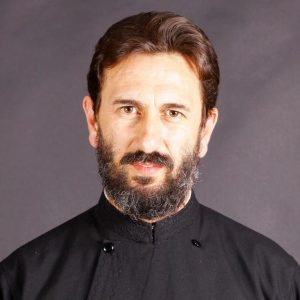
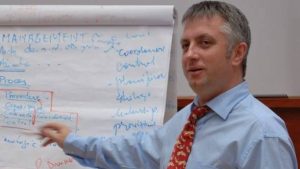

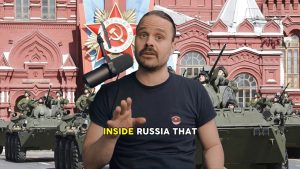
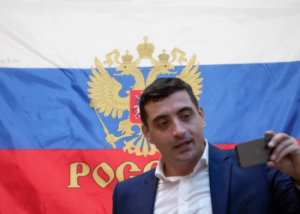
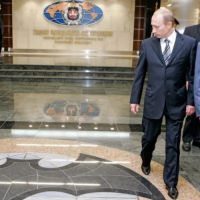

![marius-bostan-foto[1] marius-bostan-foto[1]](https://inliniedreapta.net/wp-content/uploads/elementor/thumbs/marius-bostan-foto1-qt9ywoo2b2lgv37b76h9qr5yo6db5vwzoxbuvd4e6o.jpg)

